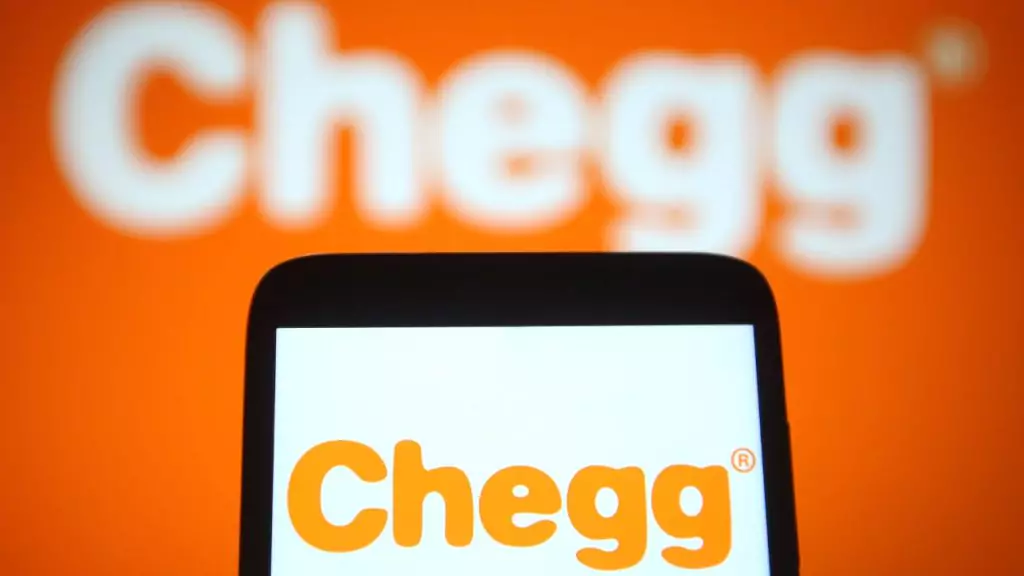
Famous online education platform Chegg is feeling pressure from OpenAI’s AI chatbot, ChatGPT. The company has announced it will lay off about 4% of its staff, as it grapples with a drop in demand for its services, largely due to the growing popularity of AI-powered homework assistance.

✅ AI Essay Writer ✅ AI Detector ✅ Plagchecker ✅ Paraphraser
✅ Summarizer ✅ Citation Generator
Key Takeaways
- Chegg is set to cut around 4% of its workforce as a strategic move towards managing the threat from OpenAI’s AI, ChatGPT. This will affect approximately 80 employees.
- The job cuts were announced following an admission by Chegg’s CEO, Dan Rosensweig, that ChatGPT’s popularity was hurting their business. The company has seen a significant decrease in new account growth since March.
- In response to the situation, Chegg has revealed its own AI strategy, which includes a new AI chatbot named CheggMate, developed in collaboration with OpenAI.
The Growing Concerns Regarding AI
ChatGPT, a sophisticated AI developed by OpenAI, offers much of the same resources Chegg provides, like homework help and access to educational resources, but with a significant advantage: it’s free. This has led to a surge in popularity among students, creating a major issue for Chegg’s subscription-based business model.
Chegg CEO, Dan Rosensweig, confirmed this during a call with analysts, stating, “We saw a significant spike in student interest in ChatGPT. We now believe it’s having an impact on our new customer growth.”
Chegg’s Strategy Shift
In a bid to maintain relevance and remain competitive, Chegg.com has outlined its AI strategy, which focuses on creating sustainable value for its students and investors. Part of this strategy involves significant layoffs, with the company preparing to part ways with about 4% of its staff.
The anticipated job cuts are expected to cost the company between $5 and $6 million in severance payments, employee benefits, and related costs, according to a recent regulatory filing.
Developing CheggMate as an Alternative
Despite the ongoing competition with OpenAI’s ChatGPT, Chegg is not throwing in the towel. The company has developed its own AI chatbot, CheggMate, in partnership with OpenAI. This AI assistant aims to personalize the learning experience for students, adapting and providing fast, accurate, and effective assistance.
Rosensweig has expressed optimism about this new development, saying, “CheggMate will harness the power of ChatGPT paired with our proprietary data and subject matter experts to make learning more personalized, adaptive, accurate, fast and effective.”
While the long-term impact of this strategy is yet to be seen, Chegg’s bold moves indicate the company’s determination to adapt to the changing educational landscape and maintain its place in the sector.
ChatGPT and the Future of Traditional Learning
Despite the concerns raised about the disruptive potential of AI tools like ChatGPT, it’s crucial to remember that these technologies are not likely to spell the end for traditional learning methods.
- Complement, Not Replace: AI technologies are designed to enhance learning experiences, not replace teachers and traditional teaching methods. They serve as a complementary tool, providing instant access to information and simplifying complex topics.
- Need for Human Interaction: Learning is not solely about obtaining knowledge. It involves social interaction, critical thinking, and learning to work collaboratively. These are aspects that AI, including ChatGPT, cannot fully replicate.
- Ethical and Regulatory Constraints: There are also ethical considerations and regulatory constraints on AI use in education. Concerns about data privacy, information accuracy, and student cheating mean that AI tools are often used within a carefully regulated framework.
- Lack of Comprehensive Understanding: AI systems, even advanced ones like ChatGPT, do not have a comprehensive understanding of the world and human experiences, as humans do. Therefore, their ability to guide students through the process of understanding complex, nuanced topics remains limited.
Therefore, while ChatGPT and similar AI tools will continue to transform the learning landscape, the importance of traditional learning methodologies will remain, working alongside AI to provide a comprehensive, well-rounded education.
Related articles:
The Unseen Revolution in Education with ChatGPT
OpenAI Sued for Defamation by Radio Host Over False Accusations Generated by ChatGPT
Cambridge University Turns a Blind Eye to AI Chatbot Use by Students
Follow us on Reddit for more insights and updates.





Comments (0)
Welcome to A*Help comments!
We’re all about debate and discussion at A*Help.
We value the diverse opinions of users, so you may find points of view that you don’t agree with. And that’s cool. However, there are certain things we’re not OK with: attempts to manipulate our data in any way, for example, or the posting of discriminative, offensive, hateful, or disparaging material.